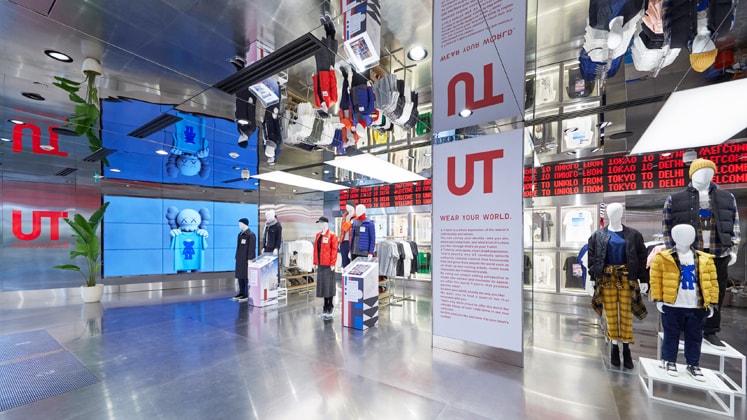News and Features
Why Japanese fashion brands are entering Indian retail market?
27 January 2020
Apparel Resources

Japanese brands are moving to potential retail destinations for growth and better market presence. While a number of Japanese fashion and lifestyle brands including the likes of Onitsuka Tiger, Miniso, Uniqlo, Wacoal, Muji, etc., already have presence in India, many are planning to enter this market.
Muji India’s spokesperson maintains, “There has been a gradual shift in the fashion retail industry wherein it has taken the form of modernisation and corporatisation. There is a visible evolution in terms of alternative retail landscapes, customisation of product portfolios to address the specific needs of various consumer segments and the growing focus on business efficiency not only for selling, but also to delight the customers in terms of experience. It’s not surprising to read that the share of fashion in India’s retail market is around 8 per cent, corresponding to a value of US $ 40 billion as per reports.”
What pulls brands to India?

While we have been witness to a slew of brands influxing the Indian retail market, the question is what is really attracting them to India? According to McKinsey FashionScope, India is expected to welcome more than 300 international brands in the next 2 years and a number of these brands are Japan-based, even as a legion of fashion and lifestyle brands from this East Asian country have already made their presence felt on the Indian soil. India is definitely taking the centrestage among the other Asian countries in terms of economic expansion. Uniqlo, which entered the Indian market in October 2019 with a retail store spread across an area of 35,000 sq.ft., expects India to outpace China and its home country in about a decade to become its largest market.
A number of factors including rapidly growing middle-class, aspirational consumers, infrastructure development, powerful manufacturing sector and strong economic fundamentals, among other drivers are making India too important for these Japanese brands. Furthermore, the Indian Government is leaving no stones unturned to make the country a favourable location for business.

“Over the last few years, the Indian market has witnessed several fascinating changes and challenges, which are indicators of country’s evolving fashion market. While actual consumption is price-conscious, purchase behaviour for premium and international brands is also increasing, and women’s social advancement is rapidly advancing. We believe this market change will accelerate in the next 10 years and we see it as a great opportunity for Wacoal’s market expansion. It seems to be the right opportunity for us to become No. 1 in India, which is the most west in Asia with all its fullness,” avers Nobuhiro Katsumata, CEO, Wacoal India, which entered India in 2016 through a joint venture with Periwinkle Group wherein Wacoal has 51 per cent share and Periwinkle holds 49 per cent share.
Chances and challenges
Apart from the fact that Japan’s Prime Minister Shinzo Abe has been reaching out to countries like India which fit well within his schemes, it is worth noting that Japan has been allowed to invest in the Andaman & Nicobar Islands and northeastern region of India which is a no-go area for other countries. This and many other factors have been a major push for the Japanese brands to enter India’s retail landscape and invest in the country. Furthermore, India has a diverse population with different tastes in their clothing choices too which necessitates any international brand to curate their respective collections for this market.
Along with the advantages, there are disadvantages and challenges as well. While these Japanese brands have all the potential to create disruption in the Indian market, there are an endless number of both homegrown and international brands who have already established their presence in the country. Therefore, in order to sustain, the Japanese brands need to invest in brand awareness, customer engagement and loyalty.
Going forward

According to the latest FDI policy framed, the Government has eased the norms that permit 30 percent local sourcing by brands on an average over a 5-year block, rather than in a single year. All the procurement done by a retail brand will be considered under the 30 percent clause, whether or not the goods procured are sold in India or exported. Additionally, favouring the interests of the retailers, the new policy will also consider the procurement done by group entities for the brand (including global operations) within the 30 percent clause.
The Japanese brands in India are betting on these relaxed policies by the Indian Government to accelerate their growth plans in the country – both as a wholly owned subsidiary and through partner-led supply chain and local sourcing.
Moving forward, with their set plan charts in place, Japanese brands will continue to enter the Indian market, and India, as lucrative as it is, will have a share of this pie to offer to them. Also, in addition, the fact that the relationship between India and Japan is the best in the history with leaders from both the countries taking a number of steps for improving the bilateral trade, is further facilitating the brands to leverage upon this.
Comments

